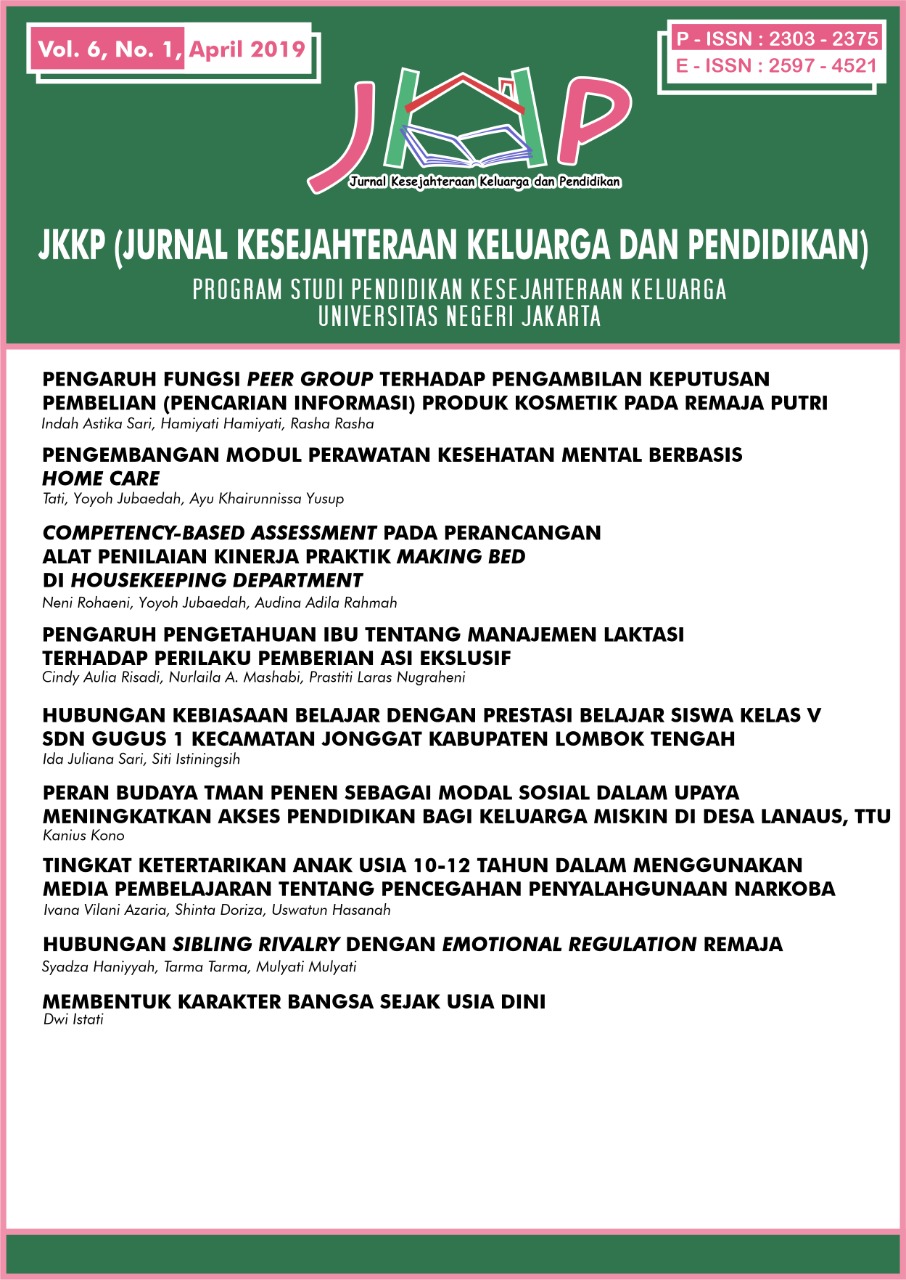Peran Budaya Tman Penen Sebagai Modal Sosial dalam Upaya Meningkatkan Akses Pendidikan bagi Keluarga Miskin di Desa Lanaus, TTU
DOI:
https://doi.org/10.21009/JKKP.061.06Keywords:
Modal Sosial, Budaya Tman Penen, Akses PendidikanAbstract
This study aims to analyze the role of social capital in improving education access for poor families. The children of poor families have low education access to continue their study in college. Low access influenced by financial factors, helping parents to earn a living and high educated unemployed. In the other side, the utilization of social capital in the education sector focus on improving human quality by formal and non-formal education, and management of the school. This qualitative research by a case study approach confirms that social capital can be utilized to improve education access for poor families. And also, the social capital contain in “tman penen†culture. The “tman penen culture is a custom of Lanaus society to come together, united and support each other either financial or moral support for families and child who want to continue their study in college. “Tman penen†culture help poor families to send school their children in college and the children can make their dream come true. Thus, social capital can be optimized in improving education access for poor families.
Keyword: Social capital, Tman Penen Culture, Education access
Downloads
Published
Issue
Section
License
Authors who publish with this Journal agree to the following terms:
- Author retain copyright and grant the journal right of first publication with the work simultaneously licensed under a creative commons attribution licensethat allow others to share the work within an acknowledgement of the work’s authorship and initial publication of this journal.
- Authors are able to enter into separate, additional contractual arrangementfor the non-exclusive distribution of the journal’s published version of the work (e.g. acknowledgement of its initial publication in this journal).
- Authors are permitted and encouraged to post their work online(e.g. in institutional repositories or on their websites) prior to and during the submission process, as it can lead to productive exchanges, as well as earlier and greater citation of published works.
Users/public use of this website will be licensed to CC BY SA
![]()







